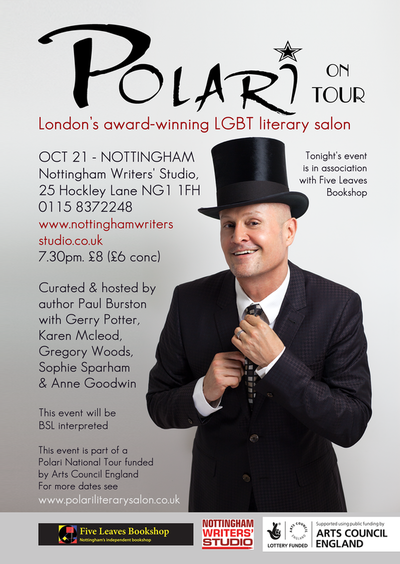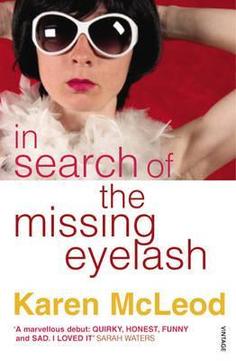| It had been a great night at the Polari salon in Nottingham, and the audience was waiting for the final performer to take the stage, when a woman bounded from the back of the room. Scowl framed by the hood of her black anorak, and ignoring the compere’s insistence that she wasn’t on the programme, Barbara Brownskirt barked out a series of poems from her numerous unpublished collections about, among other things, her unrequited love for Judi Dench. She was scary. She was hilarious. She was – and still is – the unsuccessful lesbian Poet-in-Residence at the 197 bus stop, Penge, and the brilliant creation of writer and performer Karen McLeod. |
Not me, you say? Well, she’s certainly an exaggeration, but don’t we all need a smidgen of narcissism in seeking an audience for our words? We need to believe we’ve got something worth saying keep submitting to editors, appearing at events and posting to blogs. We need the capacity to set aside our fears of rejection and criticism, of being ignored or misunderstood. A writer, or indeed an artist of any kind, encapsulates the anxieties of relating to others inherent in the human condition.
It’s also the bit that’s missing from Barbara Brownskirt’s character that makes her so poignantly funny: the humility that is necessary to temper our narcissism, to know that our words, thoughts and opinions are mere specks of dust in the universe of ideas. It’s only as babies that life owes us an audience (and we go on yearning if we don’t get it at that stage) and we find another source of satisfaction when we swap entitlement for gratitude. You know that of course.
| If you get a chance to see Barbara Brownskirt in action, I highly recommend you do. You can follow developments on Karen McLeod’s blog. The author addresses similar themes of vulnerability, narcissism, attachment and the boundary between inside and outside in her debut novel, In Search of the Missing Eyelash, published ten years ago. In a nutshell, it’s a humorous LGBT coming-of-age story about a lonely young woman who stalks her former lover. It also addresses the concept of home and gender as performance (p90): |
being female is about artifice, let’s pretend, putting things on, in, pulling bits off, plucking, waxing, cutting; squeezing into a shape or an idea.
| Audience is the topic of this week’s flash fiction challenge; timely for me as I’m contemplating how to present my second novel to readers and potential readers in person and online. After the production phase (a shape-shifting dance between characters, language and plot) gives way to the hypercritical editing phase it’s like completing a circle in going back to the start with a fresh look at the ideas that inspired it. |
Say I’m out walking the corgis, repatriating the Elgin marbles, having a sly fag out the back. I’m pinning a gong on a Muslim, completing my tax return, composing a Tweet. Say I’m out shopping for gold-plated bath taps or up in the Highlands shooting grouse. Say it in Mexican Spanish, received pronunciation or Cockney rhyming slang. Say it with a smirk or a smile, in buckles and breeches, wearing a crown or bearskin or a yellow toupee. I don’t care what you tell him, or how, but I will not grant an audience to that man.

























 RSS Feed
RSS Feed





















